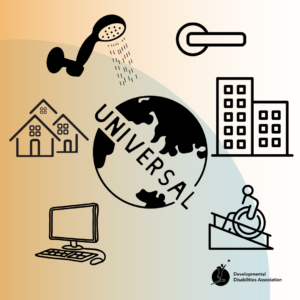As April unfolds the cherry blossoms in the Lower Mainland, it also heralds the arrival of Autism Acceptance Month. This annual observance provides an opportunity to shed light on autism spectrum disorder (ASD), fostering understanding, empathy, and most importantly, acceptance. Instead of merely raising awareness, Autism Acceptance Month aims to celebrate the valuable contributions autistic people bring to our communities and society at large. April 2nd, is also proclaimed World Autism Awareness Day.
Autism, often misunderstood and misrepresented, is a spectrum encompassing a wide range of characteristics, strengths, and challenges. Each individual with autism possesses a unique set of talents, interests, and ways of experiencing the world. From exceptional abilities in mathematics, music, art, or technology to remarkable attention to detail and pattern recognition, the diversity within the autism spectrum is vast and multifaceted.
However, autistic people may face significant barriers in education, employment, healthcare, and social interaction due to societal norms that prioritize neurotypical behaviors and communication styles.
Autism Acceptance Month seeks to dismantle these barriers by promoting a shift from mere awareness to genuine acceptance and inclusion. Acceptance goes beyond tolerance or passive acknowledgment; it entails embracing differences wholeheartedly, respecting individual autonomy, and accommodating diverse needs and preferences.
How can you support Autism Acceptance Month?
Educate Yourself: Take the initiative to learn more about autism from credible sources, such as autism advocacy organizations, academic research, and firsthand accounts from autistic individuals and their families. Understanding the diverse experiences and perspectives within the autism community is essential for fostering empathy and meaningful connections.
Challenge Stereotypes: Challenge stereotypes and misconceptions about autism whenever they arise. Advocate for accurate representation in media, literature, and popular culture, promoting narratives that reflect the complexity and richness of the autism spectrum.
Promote Inclusion: Create inclusive environments in your workplace, school, or community by implementing policies and practices that accommodate the diverse needs of individuals with autism. Foster a culture of acceptance and respect where everyone feels valued and included.
Practice Empathy and Compassion: Cultivate empathy and compassion in your interactions with autistic individuals and their families. Recognize that everyone experiences the world differently and strive to create supportive and understanding relationships based on mutual respect and empathy.
As we mentioned earlier, being autistic can mean being highly intelligent and capable. Here is a list of 70 celebrities and athletes who identify as autistic. Autism Acceptance Month is not merely a month-long observance but a call to action for creating a more inclusive and compassionate society that embraces the diversity of human experience.



